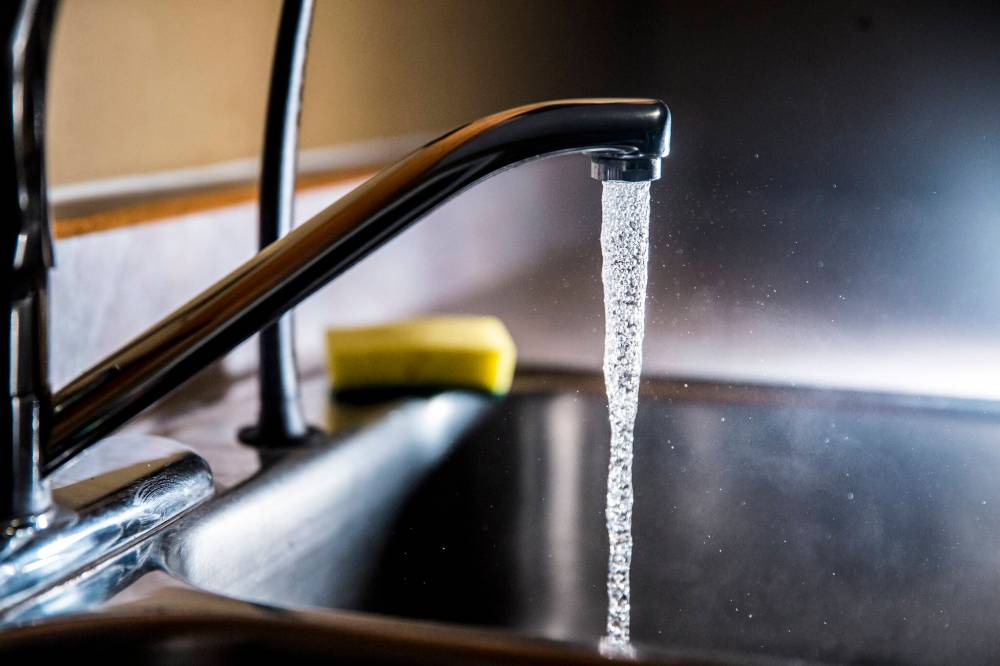$8-billion drinking water settlement ‘long overdue’ for First Nations
Advertisement
Read this article for free:
or
Already have an account? Log in here »
To continue reading, please subscribe:
Monthly Digital Subscription
$0 for the first 4 weeks*
- Enjoy unlimited reading on winnipegfreepress.com
- Read the E-Edition, our digital replica newspaper
- Access News Break, our award-winning app
- Play interactive puzzles
*No charge for 4 weeks then price increases to the regular rate of $19.00 plus GST every four weeks. Offer available to new and qualified returning subscribers only. Cancel any time.
Monthly Digital Subscription
$4.75/week*
- Enjoy unlimited reading on winnipegfreepress.com
- Read the E-Edition, our digital replica newspaper
- Access News Break, our award-winning app
- Play interactive puzzles
*Billed as $19 plus GST every four weeks. Cancel any time.
To continue reading, please subscribe:
Add Free Press access to your Brandon Sun subscription for only an additional
$1 for the first 4 weeks*
*Your next subscription payment will increase by $1.00 and you will be charged $16.99 plus GST for four weeks. After four weeks, your payment will increase to $23.99 plus GST every four weeks.
Read unlimited articles for free today:
or
Already have an account? Log in here »
Hey there, time traveller!
This article was published 29/12/2021 (1449 days ago), so information in it may no longer be current.
In what is being described as an “historic settlement,” the Federal Court of Canada and Manitoba’s Court of Queen’s Bench have jointly approved an $8-billion agreement to bring safe drinking water to First Nations and compensate community members who have lived without it for years.
The “long overdue” agreement “represents what many hope will be a turning point for Canada and First Nations,” Manitoba Queen’s Bench Chief Justice Glenn Joyal said in a written decision.
Tataskweyak Cree Nation (Manitoba), Curve Lake First Nation (Ontario) and Neskantaga First Nation (Ontario) filed a class-action lawsuit against the federal government in 2019.

“Although the parties reached the settlement in just under two years, the courts acknowledge that Indigenous communities have been advocating for decades to ensure future generations’ access to safe water,” Joyal said.
The settlement agreement applies to residents of Canada’s First Nations and First Nations that have been subject to long-term drinking water advisories of one year or longer, beginning in 1995.
The agreement includes at least $6 billion to bring safe drinking water to reserves over the next nine years, and $1.5 billion in compensation for individual community members who have been deprived of clean drinking water.
A further $400 million has been earmarked for the creation of a First Nation Economic and Cultural Restoration Fund.
Affidavits filed by community members in support of the class action described the link between poor drinking water, mental health and youth suicide. Others said the lack of clean drinking water forced them to move from their home communities, further entrenching a history of displacement among Indigenous peoples.
“Now that I live in Winnipeg, I can drink the water that comes out of my tap, just like other Canadians,” Roderick Richard Spence said in an affidavit excerpt included in Joyal’s decision. “But I have lost a piece of who I am. It seems like an awful trade to have to make.
“I certainly hope that my grandchildren get better treatment. I dream for this, pray for this, cry for this.”
At Curve Lake, 15 kilometres outside of Peterborough, a water treatment plant constructed 40 years ago and intended to be a temporary fix provides inadequately disinfected water for 56 of the community’s 550 homes, with the balance remaining unserviced.
In an affidavit, community member Shawn Williams compared efforts to secure a new water treatment plant to being on a “hamster wheel,” with the First Nation “constantly running , working to provide proposals, obtain necessary studies, seeking funding, only to be in the exact position decades later.”
In a news release, the federal government said it is “firmly committed to improving reliable access to safe drinking water in First Nations communities.
“The government of Canada will continue to work with all First nations… to address water concerns,” the news release said. “Together, we will develop sustainable, long-term solutions so that future generations do not have to worry about the safety of their drinking water.”
dean.pritchard@freepress.mb.ca

Someone once said a journalist is just a reporter in a good suit. Dean Pritchard doesn’t own a good suit. But he knows a good lawsuit.
Our newsroom depends on a growing audience of readers to power our journalism. If you are not a paid reader, please consider becoming a subscriber.
Our newsroom depends on its audience of readers to power our journalism. Thank you for your support.
History
Updated on Thursday, December 30, 2021 9:43 AM CST: Tweaks hed for style

